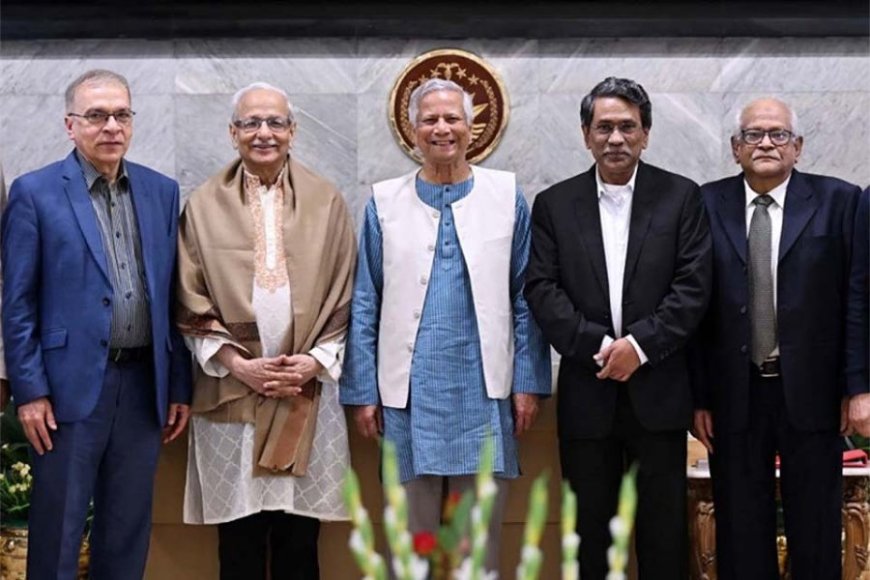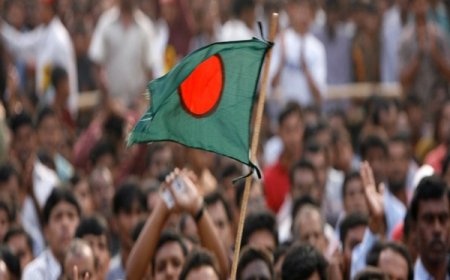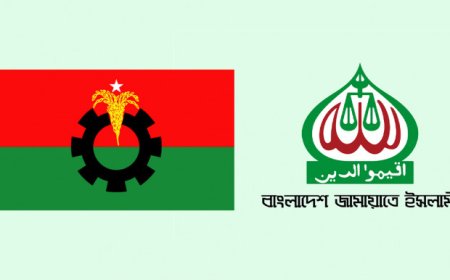We have an unprecedented opportunity to reform our state and politics right now. Let’s not let it slip away
We have an unprecedented opportunity to reform our state and politics right now. Let’s not let it slip away

This could well become Professor Muhammad Yunus’s most enduring legacy. He empowered the poor to break free from the chains of poverty through microcredit. Now, he is providing Bangladesh with an opportunity to escape its political, governance, and institutional constraints, allowing it to move forward with democracy, equality, justice, and tolerance. With a single action, he has opened a rare window for fundamental reforms in key areas that have eluded us for the past 54 years. While we commend the chief adviser and his team for this monumental effort, we must also acknowledge the true heroes who made these reforms possible: the students, some teachers, intellectuals, civil society leaders, segments of the media, and, of course, the general public.
Independence in 1971 gave us our first opportunity to build a democratic and egalitarian state. We had a second chance after General HM Ershad's fall, when democracy was restored following a coordinated mass uprising led by a political alliance. Unfortunately, we missed both chances. However, the role of students in nation-building is not new—they were key figures in the 1952 Language Movement, as well as in the democratic and anti-military movements of the 1950s and 1960s. During the Liberation War (Muktijuddho), their contribution was unparalleled. They were also at the forefront of the anti-Ershad movement in the 1990s, and later in the student-led mass movement of July-August 2024, which has reopened the possibility of building the Bangladesh envisioned by the martyrs of the Liberation War.
When Sheikh Hasina’s government fell, choosing a self-corrective process over an immediate election was the right and historic decision. The formation of reform commissions was a prudent move, and the areas they focused on were well-chosen. The individuals selected to lead these commissions were widely accepted, although the lack of female leadership (with only one exception) was a significant shortcoming. Completing the work of four commissions within the set timeframe demonstrates their efficiency and commitment. Preliminary reviews of the four commission reports, submitted on January 15, show that their recommendations are substantial, although some appear driven more by emotion than clear, reasoned judgment.
The recommendations of the Constitution Reform Commission are particularly noteworthy. We support the introduction of a bicameral system, a two-term limit for the prime minister, the creation of a National Constitutional Council, and the reintroduction of the caretaker government system. However, we believe that holding elections every four years may be counterproductive, as it would shorten the tenure of elected governments and hinder their ability to implement long-term policies. Elections are also a costly and logistically challenging affair, which could burden a country like ours.
Reforms in the election system and the Anti-Corruption Commission (ACC) are crucial. We also want to emphasize the need for police reform, as the police force has, in our view, been the most misused and vilified state institution. A study released by the International Truth and Justice Project (ITJP) and Tech Global Institute (TGI) on January 14 shows the extent to which the police force has become brutal and oppressive. This underscores the urgent need to transform the police from an anti-people institution into one that serves the people. Changing the mindset of police officers, who have been conditioned to view protesters as enemies, will be a monumental challenge. Their training is typically limited to using force against crowds, with little focus on crowd control tactics that prioritize non-violent solutions.
All the recommendations of the four commissions, as well as any future ones, should be open to genuine national debate. The first step is ensuring transparency. We must avoid personal attacks and labeling, which stifle the kind of open discussion that is essential for progress. The chief adviser has rightly focused on engaging political parties in dialogue. However, we believe efforts should also be made to include think tanks, rights groups, religious and ethnic minorities, and other stakeholders in the process. The media should actively promote a deeper and broader discussion on these issues, reaching out to both their audiences and experts.
Political parties must approach the reform proposals with the nation’s best interests at heart, rather than their own party agendas. Since the restoration of democracy in 1991, Bangladesh has effectively been ruled by two main parties—the Awami League (AL) and the Bangladesh Nationalist Party (BNP)—though both have had allies in power. Under Sheikh Hasina’s authoritarian rule, it’s easy to overlook the fact that the BNP ruled for ten years after Ershad’s fall. A key mistake by both AL and BNP between 1991 and 2006 was treating parliament not as a forum for the people but as an extension of the ruling party, given that the treasury bench held the majority. Even when in the minority, the opposition had a much better chance to voice dissent, but instead, boycotts became the norm. The lack of experience with a parliamentary system of governance—since we essentially had none until 1991—was a major factor in this failure. Both the ruling party and the opposition neglected the idea that the opposition should be regarded as a "shadow government," with a legitimate role in the power structure. Instead, both sides contributed to a dysfunctional system that weakened the parliamentary process and democracy itself, leading to public suffering and economic damage, especially from endless and ill-considered hartals.
This newspaper has published numerous reports and opinion pieces urging the ruling party to respect the opposition and calling on the opposition to participate in the parliamentary process. Sadly, these calls went unheeded, resulting in the gradual erosion of parliament, the parliamentary system, and democracy as a whole. While we discuss reforms to various state institutions, we cannot overlook the fact that political parties themselves need reform.
Professor Yunus’s initiative to create a consensus commission is highly commendable, as dialogue with all political parties is essential for progress. Yet, the political parties also bear a critical responsibility: they must engage in this process with sincerity and commitment. We urge them to bring their concerns to the table, argue based on facts and reason, and ultimately reach a consensus. Once consensus is achieved, political parties should publicly commit to honoring their promises, ensuring that whichever party is elected will uphold its pledges through constitutional amendments and relevant laws, ensuring that reforms are incorporated into Bangladesh’s governance framework.
What's Your Reaction?





















































































